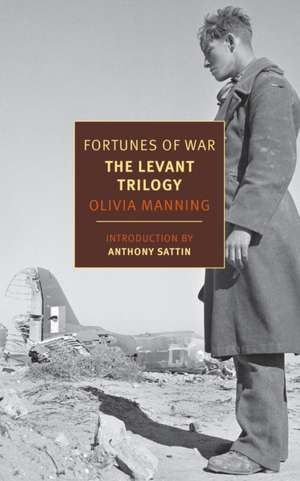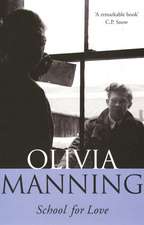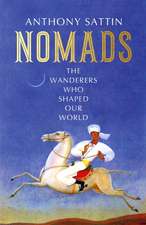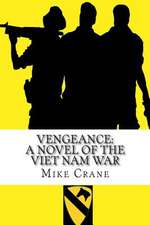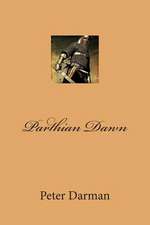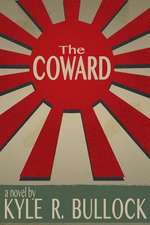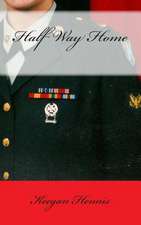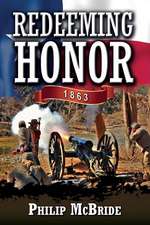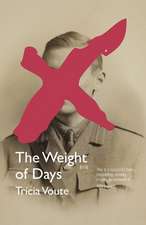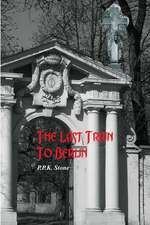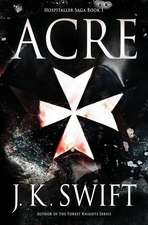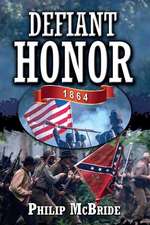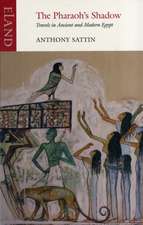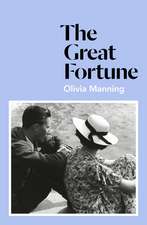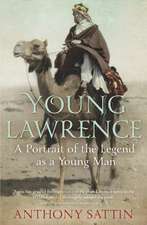Fortunes of War: The Levant Trilogy: New York Review Books Classics
Autor Olivia Manning Anthony Sattinen Limba Engleză Paperback – 9 iun 2014
Into this mix enter Guy and Harriet Pringle, whose story began in Olivia Manning’s magisterial Balkan Trilogy. They have successfully escaped Nazi-occupied Greece but are dogged by uncertainties about their marriage. And, as Simon discovers that the realities of war are both more prosaic and more terrible than he had imagined, Harriet is forced to confront her precarious health and her place beside her husband.
| Toate formatele și edițiile | Preț | Express |
|---|---|---|
| Paperback (2) | 134.04 lei 3-5 săpt. | |
| NEW YORK REVIEW OF BOOKS – 9 iun 2014 | 134.04 lei 3-5 săpt. | |
| NEW YORK REVIEW OF BOOKS – 31 dec 2009 | 180.72 lei 3-5 săpt. |
Din seria New York Review Books Classics
-
 Preț: 126.47 lei
Preț: 126.47 lei -
 Preț: 98.01 lei
Preț: 98.01 lei -
 Preț: 123.05 lei
Preț: 123.05 lei -
 Preț: 77.16 lei
Preț: 77.16 lei -
 Preț: 123.62 lei
Preț: 123.62 lei -
 Preț: 101.49 lei
Preț: 101.49 lei -
 Preț: 100.49 lei
Preț: 100.49 lei -
 Preț: 94.12 lei
Preț: 94.12 lei -
 Preț: 94.73 lei
Preț: 94.73 lei -
 Preț: 75.90 lei
Preț: 75.90 lei -
 Preț: 173.33 lei
Preț: 173.33 lei -
 Preț: 109.90 lei
Preț: 109.90 lei -
 Preț: 118.68 lei
Preț: 118.68 lei -
 Preț: 82.46 lei
Preț: 82.46 lei -
 Preț: 85.16 lei
Preț: 85.16 lei -
 Preț: 85.97 lei
Preț: 85.97 lei -
 Preț: 180.72 lei
Preț: 180.72 lei -
 Preț: 141.61 lei
Preț: 141.61 lei -
 Preț: 90.04 lei
Preț: 90.04 lei -
 Preț: 102.53 lei
Preț: 102.53 lei -
 Preț: 113.30 lei
Preț: 113.30 lei -
 Preț: 99.86 lei
Preț: 99.86 lei -
 Preț: 120.68 lei
Preț: 120.68 lei -
 Preț: 106.61 lei
Preț: 106.61 lei -
 Preț: 172.74 lei
Preț: 172.74 lei -
 Preț: 84.70 lei
Preț: 84.70 lei -
 Preț: 88.61 lei
Preț: 88.61 lei -
 Preț: 119.36 lei
Preț: 119.36 lei -
 Preț: 89.41 lei
Preț: 89.41 lei -
 Preț: 95.57 lei
Preț: 95.57 lei -
 Preț: 98.86 lei
Preț: 98.86 lei -
 Preț: 93.31 lei
Preț: 93.31 lei -
 Preț: 98.73 lei
Preț: 98.73 lei -
 Preț: 86.56 lei
Preț: 86.56 lei -
 Preț: 88.20 lei
Preț: 88.20 lei -
 Preț: 135.88 lei
Preț: 135.88 lei -
 Preț: 83.30 lei
Preț: 83.30 lei -
 Preț: 104.39 lei
Preț: 104.39 lei -
 Preț: 160.66 lei
Preț: 160.66 lei - 16%
 Preț: 79.25 lei
Preț: 79.25 lei -
 Preț: 88.20 lei
Preț: 88.20 lei -
 Preț: 132.21 lei
Preț: 132.21 lei -
 Preț: 96.78 lei
Preț: 96.78 lei -
 Preț: 101.71 lei
Preț: 101.71 lei -
 Preț: 108.45 lei
Preț: 108.45 lei -
 Preț: 111.13 lei
Preț: 111.13 lei -
 Preț: 99.45 lei
Preț: 99.45 lei -
 Preț: 75.23 lei
Preț: 75.23 lei -
 Preț: 90.45 lei
Preț: 90.45 lei -
 Preț: 94.86 lei
Preț: 94.86 lei
Preț: 134.04 lei
Nou
Puncte Express: 201
Preț estimativ în valută:
25.67€ • 26.19$ • 21.60£
25.67€ • 26.19$ • 21.60£
Carte disponibilă
Livrare economică 05-19 februarie
Preluare comenzi: 021 569.72.76
Specificații
ISBN-13: 9781590177211
ISBN-10: 1590177215
Pagini: 568
Dimensiuni: 128 x 207 x 31 mm
Greutate: 0.58 kg
Editura: NEW YORK REVIEW OF BOOKS
Seria New York Review Books Classics
ISBN-10: 1590177215
Pagini: 568
Dimensiuni: 128 x 207 x 31 mm
Greutate: 0.58 kg
Editura: NEW YORK REVIEW OF BOOKS
Seria New York Review Books Classics
Notă biografică
Olivia Manning (1908ߝ1980) was a British writer. Her first real success as a novelist was The Great Fortune, the first of six books concerning Guy and Harriet Pringle, whose wartime experiences and troubled marriage echoed that of the diffident Manning and her gregarious husband. In the 1980s these novels were collected in two volumes, The Balkan Trilogy and The Levant Trilogy, known collectively as Fortunes of War. In addition to her novels, Manning wrote essays and criticism, history, a screenplay, and a book about Burmese and Siamese cats. She was made a Commander of the Order of the British Empire in 1976, and died four years later. In addition to The Balkan Trilogy, NYRB Classics has also published Manning’s novel School for Love.
Recenzii
“The finest fictional record of the war produced by a British writer.” —Anthony Burgess
“A tour de force...a picture of the Middle East in wartime that we shall want to look at again and again.” —The Listener
“Books not nearly as good are touted as definitive portraits of the war; very little on a best-seller list is more readable. Manning’s giant six-volume effort is one of those combinations of soap opera and literature that are so rare you’d think it would meet the conditions of two kinds of audiences: those after what the trade calls ‘a good read,’ and those who want something more.... The working out of the plot of Fortunes of War has something of the suspense of an adventure story heightened by the surfacing of forgotten fact—as if the reader were undergoing an analysis whose subject was history rather than subjective memory.... Manning, who avoids elevations of style as if an ascent were a bog, also evades sentimentality, and although she can handle atmosphere, her main interests are those two staples of realistic fiction, character and action.” —Howard Moss, The New York Review of Books
“How many Americans who have read Barbara Pym, Beryl Bainbridge, or Iris Murdoch have ever heard of Olivia Manning? Yet she is one of the most gifted English writers of her generation.... Nobody has written better about World War II—the feel of fighting it and its dislocating effects on ordinary, undistinguished lives.” —Eve Auchincloss, The New York Times
“Olivia Manning’s greatest achievements are the Balkan and Levant novels. In these she handles her daunting wealth of material with great artistic dexterity and an admirable sense of proportion that at the same time never reduces. Nor does her concern to understand public events impair her analytical comprehension of the private lives of her people.... Olivia Manning wrote as courageously about death and the fear of death—in combat, in accident, through disease, through age—as any novelist in our language this century.” —Paul Binding, New Statesman
“But also the unobtrusiveness of this unforgettable book is a function of Olivia Manning’s style. At first one wonders, ‘Why doesn’t she write more?’ for this is a very austere and self-denying manner. But gradually we become aware that she doesn’t need to ‘write,’ to make things up to beguile us, because what she has so powerfully observed is true, and she has set it down without fuss.” —Richard Dyer, The Boston Globe
“These books are clearly among the very best fiction about the Second World War. They are written with the English poise and understatement that Jane Austen raised to its highest art form.” —Chris Patten, The Sunday Times
“A tour de force...a picture of the Middle East in wartime that we shall want to look at again and again.” —The Listener
“Books not nearly as good are touted as definitive portraits of the war; very little on a best-seller list is more readable. Manning’s giant six-volume effort is one of those combinations of soap opera and literature that are so rare you’d think it would meet the conditions of two kinds of audiences: those after what the trade calls ‘a good read,’ and those who want something more.... The working out of the plot of Fortunes of War has something of the suspense of an adventure story heightened by the surfacing of forgotten fact—as if the reader were undergoing an analysis whose subject was history rather than subjective memory.... Manning, who avoids elevations of style as if an ascent were a bog, also evades sentimentality, and although she can handle atmosphere, her main interests are those two staples of realistic fiction, character and action.” —Howard Moss, The New York Review of Books
“How many Americans who have read Barbara Pym, Beryl Bainbridge, or Iris Murdoch have ever heard of Olivia Manning? Yet she is one of the most gifted English writers of her generation.... Nobody has written better about World War II—the feel of fighting it and its dislocating effects on ordinary, undistinguished lives.” —Eve Auchincloss, The New York Times
“Olivia Manning’s greatest achievements are the Balkan and Levant novels. In these she handles her daunting wealth of material with great artistic dexterity and an admirable sense of proportion that at the same time never reduces. Nor does her concern to understand public events impair her analytical comprehension of the private lives of her people.... Olivia Manning wrote as courageously about death and the fear of death—in combat, in accident, through disease, through age—as any novelist in our language this century.” —Paul Binding, New Statesman
“But also the unobtrusiveness of this unforgettable book is a function of Olivia Manning’s style. At first one wonders, ‘Why doesn’t she write more?’ for this is a very austere and self-denying manner. But gradually we become aware that she doesn’t need to ‘write,’ to make things up to beguile us, because what she has so powerfully observed is true, and she has set it down without fuss.” —Richard Dyer, The Boston Globe
“These books are clearly among the very best fiction about the Second World War. They are written with the English poise and understatement that Jane Austen raised to its highest art form.” —Chris Patten, The Sunday Times
